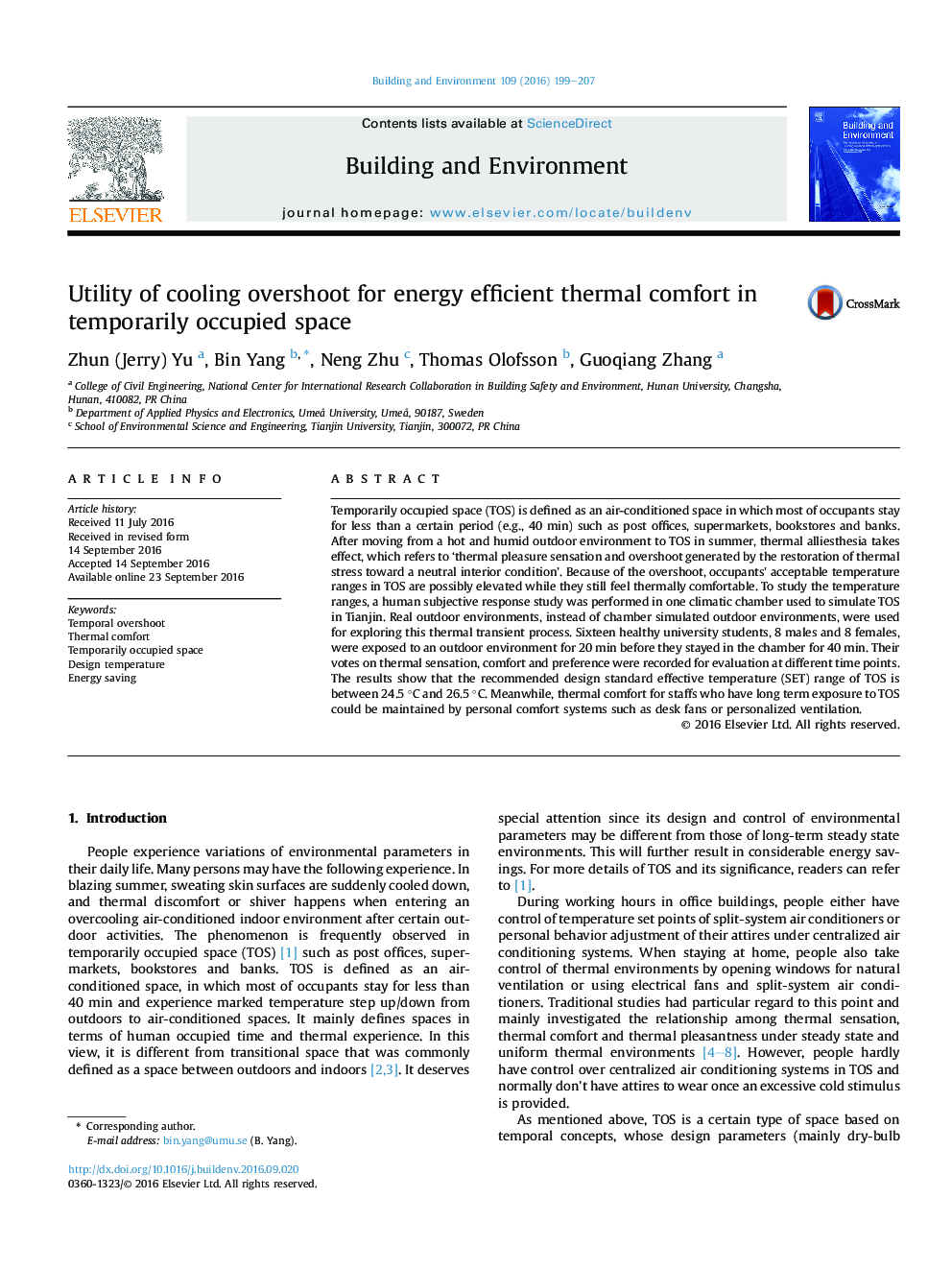| کد مقاله | کد نشریه | سال انتشار | مقاله انگلیسی | نسخه تمام متن |
|---|---|---|---|---|
| 4917547 | 1428383 | 2016 | 9 صفحه PDF | دانلود رایگان |
عنوان انگلیسی مقاله ISI
Utility of cooling overshoot for energy efficient thermal comfort in temporarily occupied space
ترجمه فارسی عنوان
بهره وری از خنک کننده خنک کننده برای راحتی حرارتی کارآمد در فضای موقت اشغال شده
دانلود مقاله + سفارش ترجمه
دانلود مقاله ISI انگلیسی
رایگان برای ایرانیان
کلمات کلیدی
بیش از حد طولانی، راحتی حرارتی، فضای موقت اشغال شده، دمای طراحی ذخیره انرژی،
موضوعات مرتبط
مهندسی و علوم پایه
مهندسی انرژی
انرژی های تجدید پذیر، توسعه پایدار و محیط زیست
چکیده انگلیسی
Temporarily occupied space (TOS) is defined as an air-conditioned space in which most of occupants stay for less than a certain period (e.g., 40 min) such as post offices, supermarkets, bookstores and banks. After moving from a hot and humid outdoor environment to TOS in summer, thermal alliesthesia takes effect, which refers to 'thermal pleasure sensation and overshoot generated by the restoration of thermal stress toward a neutral interior condition'. Because of the overshoot, occupants' acceptable temperature ranges in TOS are possibly elevated while they still feel thermally comfortable. To study the temperature ranges, a human subjective response study was performed in one climatic chamber used to simulate TOS in Tianjin. Real outdoor environments, instead of chamber simulated outdoor environments, were used for exploring this thermal transient process. Sixteen healthy university students, 8 males and 8 females, were exposed to an outdoor environment for 20 min before they stayed in the chamber for 40 min. Their votes on thermal sensation, comfort and preference were recorded for evaluation at different time points. The results show that the recommended design standard effective temperature (SET) range of TOS is between 24.5 °C and 26.5 °C. Meanwhile, thermal comfort for staffs who have long term exposure to TOS could be maintained by personal comfort systems such as desk fans or personalized ventilation.
ناشر
Database: Elsevier - ScienceDirect (ساینس دایرکت)
Journal: Building and Environment - Volume 109, 15 November 2016, Pages 199-207
Journal: Building and Environment - Volume 109, 15 November 2016, Pages 199-207
نویسندگان
Zhun (Jerry) Yu, Bin Yang, Neng Zhu, Thomas Olofsson, Guoqiang Zhang,
